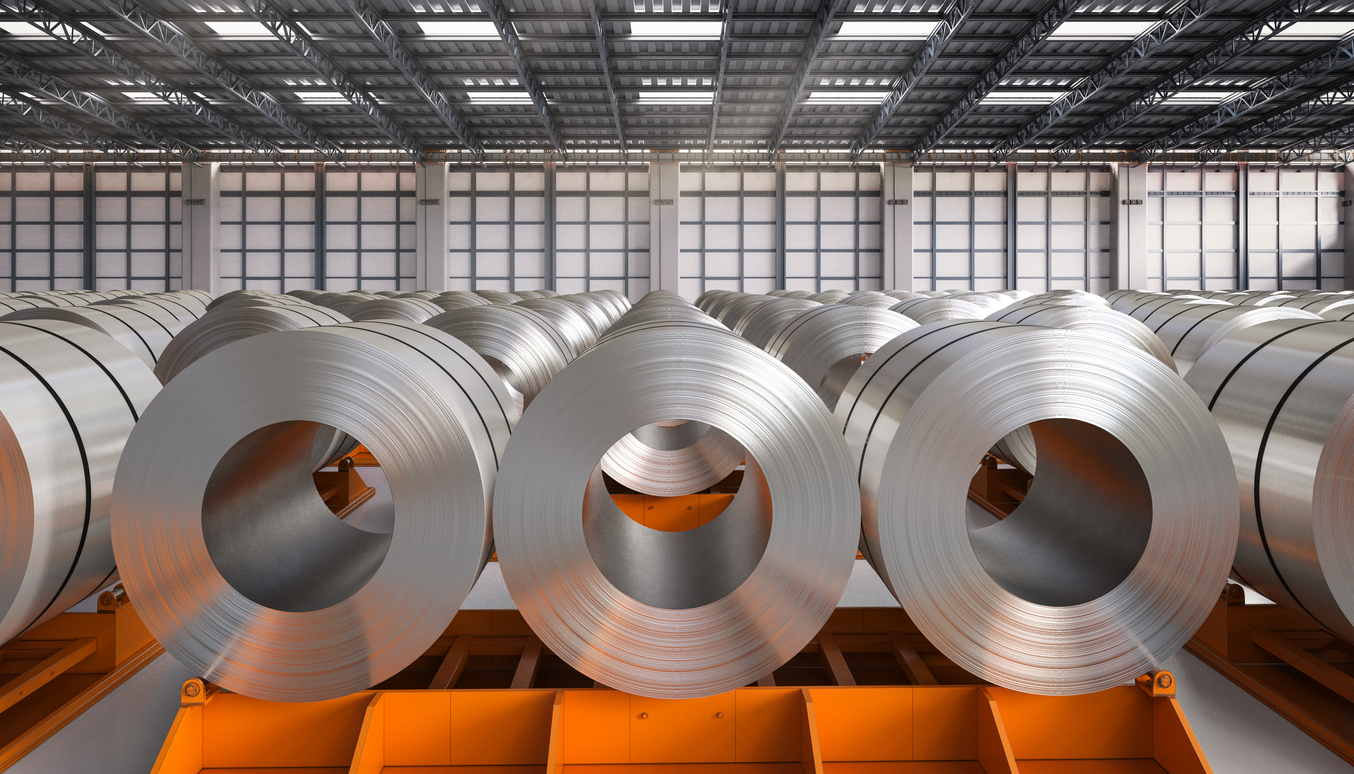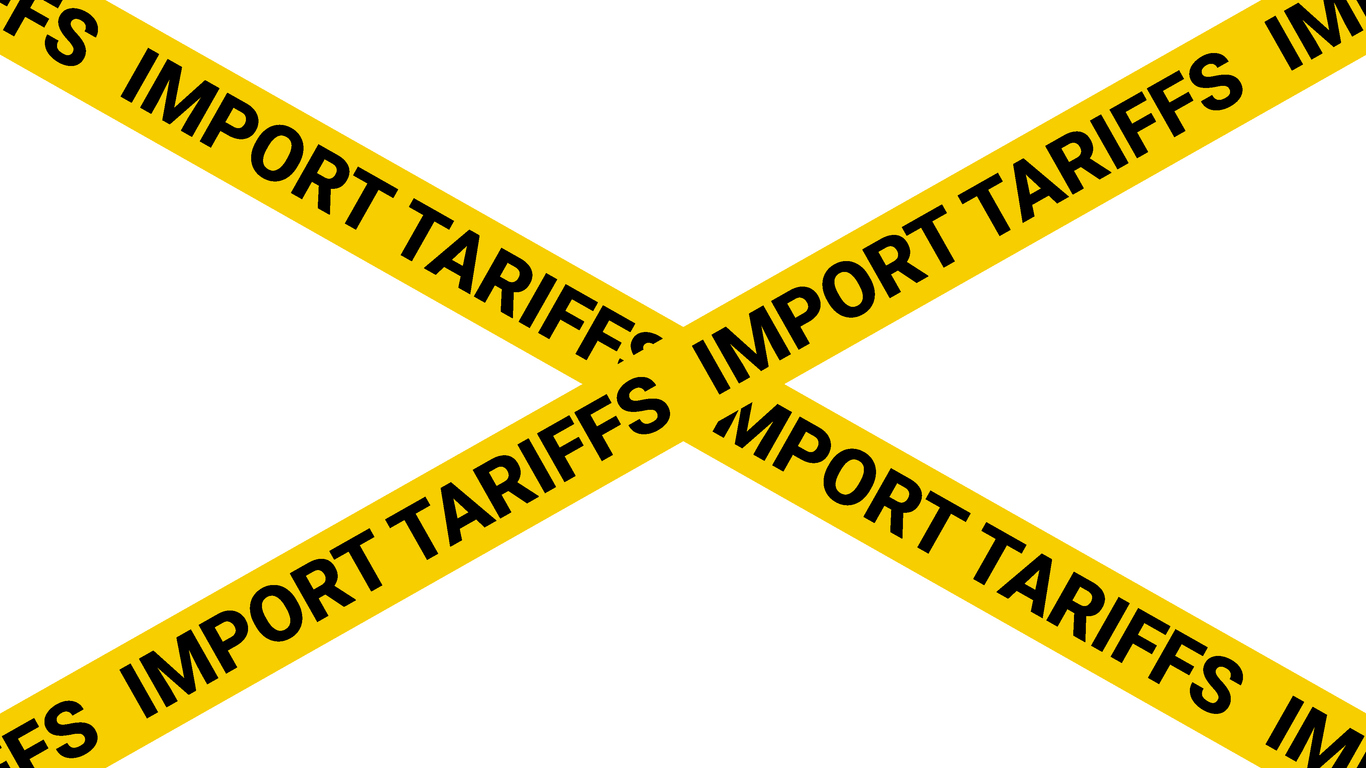Exploring the Reliable Supply of Basic Iron and Steel in Nigeria with Wigmore Trading
Exploring the Reliable Supply of Basic Iron and Steel in Nigeria with Wigmore Trading
Nigeria’s booming construction industry relies heavily on a steady supply of basic iron and steel, but finding a reliable source can be a challenge. Enter Wigmore Trading – the trusted partner for businesses looking to secure high-quality materials for their projects. Join us as we delve into how Wigmore Trading is revolutionizing the supply chain in Nigeria and ensuring that builders have access to the essential materials they need to bring their visions to life.
Introduction to Wigmore Trading and their role in the supply of basic iron and steel in Nigeria
Introduction to Wigmore Trading and their Role in the Supply of Basic Iron and Steel in Nigeria
Nigeria is one of the largest producers of iron and steel in Africa, with a long history of using these materials to support its growing economy. As a result, there is a high demand for basic iron and steel products in various industries such as construction, manufacturing, and transportation. However, meeting this demand has been challenging due to limited local production capacity.
This is where Wigmore Trading comes into play. Established in 2012, Wigmore Trading has become a leading supplier of basic iron and steel products in Nigeria. The company’s mission is to bridge the gap between supply and demand by providing high-quality products at competitive prices.
Wigmore Trading sources its products from trusted manufacturers around the world, ensuring that only top-notch materials are delivered to their customers. The company offers a wide range of basic iron and steel products including bars, rods, sheets, pipes, and coils, among others. These products are available in different sizes and grades to meet the specific needs of their clients.
One major advantage of partnering with Wigmore Trading is their commitment to quality control. All their suppliers undergo strict quality checks before being approved as vendors. This ensures that all products meet international standards for strength, durability, and reliability.
The company also boasts efficient logistics capabilities that enable them to deliver products promptly across Nigeria. With strategically located warehouses in major cities like Lagos and Abuja, customers can expect timely delivery regardless of their location within the country.
In addition to supplying basic iron and steel products directly to customers across various industries, Wigmore Trading also provides raw materials for small-scale metal fabricators who may not have easy access to larger supply channels. This supports local businesses while also promoting economic growth through job creation.
Moreover, Wigmore Trading takes environmental sustainability seriously by adhering to eco-friendly practices throughout its operations. This includes recycling waste materials from their production processes and using energy-efficient methods to reduce their carbon footprint.
The role of Wigmore Trading in the supply of basic iron and steel in Nigeria cannot be overstated. Their dedication to providing high-quality products, efficient logistics, and commitment to sustainability has made them a reliable partner for businesses and individuals seeking these materials.
The importance of basic iron and steel in Nigeria’s economy
Nigeria’s economy is one of the most vibrant and rapidly growing economies in Africa. The country has a diverse range of natural resources, including oil, gas, and minerals. Among these minerals, iron and steel have played a crucial role in the development of Nigeria’s economy.
Iron and steel are essential raw materials used in various industries such as construction, manufacturing, transportation, energy production, and many more. These industries form the backbone of any economy and contribute significantly to its growth and development. In Nigeria, iron and steel have been identified as critical drivers for economic growth due to their multiple uses across different sectors.
One of the most significant contributions of basic iron and steel to Nigeria’s economy is its impact on job creation. The industry provides employment opportunities for thousands of people directly through mining activities or indirectly through downstream industries that rely on iron and steel as raw materials. This has helped reduce unemployment rates in the country while also increasing household income levels.
Furthermore, basic iron and steel production plays a vital role in fostering technological advancement in Nigeria. As the country continues to invest in modernizing its infrastructure, it requires high-quality construction materials like reinforced concrete bars made from steel. Also, with the rise of renewable energy sources such as wind turbines and solar panels that require large amounts of steel components for their manufacturing process – basic iron and steel become increasingly essential.
The reliable supply of basic iron and steel is crucial for sustaining industrialization efforts in Nigeria. Without adequate availability of these materials at affordable prices, businesses face challenges in expanding their operations or keeping up with demand from consumers. This can hinder economic growth prospects by discouraging investment opportunities within the country.
Moreover, Nigerian government policies have consistently recognized the importance of developing a robust domestic market for basic iron…
and steel products to stimulate economic growth effectively. This has led to initiatives such as import duties on finished goods made from imported metals while providing incentives for local producers who add value locally.
Additionally, the importance of basic iron and steel in Nigeria’s economy extends beyond its contribution to employment and industrialization. It also plays a significant role in foreign exchange earnings through exports. The country has vast iron ore reserves, making it an attractive destination for international investors looking to secure stable and long-term supply contracts.
There is no denying the critical role that basic iron and steel play in Nigeria’s economy. It is not only a source of employment but also a crucial driver of technological advancement, industrialization, and foreign exchange earnings. Therefore, ensuring a reliable supply of these materials is vital for sustained economic growth and development in the country. And with Wigmore Trading as a reliable supplier of high-quality basic iron and steel products, businesses can rest assured that their production processes will not be disrupted due to supply shortages or poor quality materials.
Understanding the current state of supply and demand for basic iron and steel in Nigeria
The Nigerian steel industry has been a major player in the country’s economic development, with basic iron and steel being one of its primary products. However, over the years, there have been fluctuations in the supply and demand for this essential commodity.
Currently, the demand for basic iron and steel in Nigeria is steadily increasing due to the growth of various sectors such as construction, manufacturing, and infrastructure development. With a population of over 200 million people and an expanding economy, there is a constant need for raw materials like iron ore to cater to the rising demand for steel products.
On the supply side, Nigeria has significant reserves of iron ore estimated at about 2.5 billion tonnes. However, only a small percentage of these reserves are currently being utilized due to various challenges such as inadequate infrastructure, high production costs, and inefficient mining methods. As a result, Nigeria relies heavily on imported metals to meet its domestic demands.
This heavy reliance on imports has led to an increase in prices of basic iron and steel products in the local market. This not only affects consumers but also hinders the growth potential of industries that rely on these materials as their primary inputs.
Furthermore, another factor affecting the current state of supply and demand for basic iron and steel in Nigeria is government policies. In recent years, there have been efforts by the Nigerian government to encourage local production through initiatives such as import restrictions and tariffs on imported goods. While these measures aim to boost domestic production and reduce dependence on imports, they have also resulted in increased costs for businesses operating within this sector.
Additionally, there have been concerns about quality control standards in locally produced basic iron and steel products. This has led some industries to still prefer importing from more established markets with better quality assurance processes.
Despite these challenges facing both supply and demand sides of basic iron and steel in Nigeria, there are still opportunities for growth within this sector. The government’s push towards diversifying its economy and the recent improvements in infrastructure, such as railways, provide a positive outlook for the development of the steel industry.
Moreover, initiatives like Wigmore Trading’s partnership with local manufacturers aim to promote the reliable supply of basic iron and steel products while also ensuring quality control. With these efforts in place, it is evident that there is potential for Nigeria to become self-sufficient in meeting its demand for basic iron and steel.
Challenges faced by Wigmore Trading in maintaining a reliable supply of basic iron and steel in Nigeria
Wigmore Trading, a leading importer and distributor of basic iron and steel in Nigeria, faces numerous challenges in maintaining a reliable supply of these essential materials. The Nigerian market for basic iron and steel is highly competitive, with many local and international players vying for market share. This intense competition often leads to fluctuating prices and inconsistent availability of raw materials, making it difficult for Wigmore Trading to maintain a stable supply chain.
One major challenge faced by Wigmore Trading is the inadequate infrastructure for transportation and storage of iron and steel products in Nigeria. As the majority of these materials are imported from other countries, they must be transported long distances via road or rail networks that are often underdeveloped or poorly maintained. This results in frequent delays and damages during transit, which can significantly disrupt the supply chain. Additionally, inadequate storage facilities at ports and warehouses pose another obstacle as they are not equipped to handle large quantities of these heavy materials efficiently.
Moreover, Nigeria’s unreliable power supply also poses a significant challenge for Wigmore Trading in maintaining a steady supply of basic iron and steel. These materials require high energy consumption during production processes such as smelting, casting, forging, etc., making them heavily dependent on consistent electricity supply. However, due to frequent power outages and load shedding across the country, production schedules are often disrupted, leading to delays in delivery times.
Another major issue faced by Wigmore Trading is the scarcity of skilled labor within the Nigerian manufacturing industry. Basic iron and steel production require specialized skills that are not readily available in the domestic labor pool. This means that most industries rely on expatriate workers who come at higher costs compared to their local counterparts. Additionally, there is also a shortage of trained personnel in logistics management within Nigeria’s transportation sector further complicating matters.
Furthermore, fluctuations in government policies regarding import duties and taxes add another layer of complexity for Wigmore Trading’s operations. Changes in trade policies and regulations can have a direct impact on the cost of importing basic iron and steel, making it challenging to forecast pricing accurately. This unpredictability in the market makes it difficult for Wigmore Trading to maintain a steady supply of materials at competitive prices.
Despite these challenges, Wigmore Trading has been able to establish itself as a reliable supplier of basic iron and steel in Nigeria. The company has implemented various strategies such as partnering with reputable manufacturers, investing in efficient logistics and storage systems, and training local workers to overcome these obstacles. Through their dedication and resilience, Wigmore Trading continues to play a vital role in meeting Nigeria’s growing demand for essential iron and steel products.
Strategies employed by Wigmore Trading to ensure a consistent supply of basic iron and steel
Wigmore Trading has established itself as a leading supplier of basic iron and steel in Nigeria through its consistent focus on ensuring a reliable supply to meet the demands of the market. To achieve this goal, the company has implemented various strategies that allow for efficient production, sourcing and distribution of these essential materials.
One of the main strategies employed by Wigmore Trading is establishing strong partnerships with trusted suppliers. The company works closely with reputable manufacturers and distributors both locally and internationally to secure a consistent supply of high-quality basic iron and steel products. This helps to minimize any potential disruptions in the supply chain and ensures that customers receive their orders on time.
In addition, Wigmore Trading has also invested in modern technology and equipment to streamline its production processes. By utilizing advanced machinery, the company is able to increase efficiency, reduce production costs, and maintain a steady flow of products into the market. This not only allows for a continuous supply but also enables Wigmore Trading to offer competitive prices without compromising on quality.
Another key strategy employed by Wigmore Trading is maintaining an adequate inventory level. With a clear understanding of market demand, the company ensures that it always has sufficient stock on hand to fulfill customer orders promptly. This proactive approach helps prevent shortages or delays in delivery which can have adverse effects on both Wigmore Trading’s reputation and its customers’ operations.
To further enhance its commitment towards consistency in supply, Wigmore Trading constantly monitors market trends and anticipates any potential changes or challenges that may impact production or sourcing capabilities. By staying informed about industry developments, economic conditions, and regulatory changes, the company can proactively adjust its strategies accordingly to ensure uninterrupted access to basic iron and steel.
Additionally, risk management plays a crucial role in maintaining a reliable supply chain at Wigmore Trading. The company regularly conducts thorough risk assessments across all stages of its operations – from procurement to distribution – identifying potential risks such as natural disasters or transportation issues that could disrupt supplies. These assessments help the company to develop contingency plans and mitigate any potential risks, ensuring a smooth and consistent supply of basic iron and steel.
Wigmore Trading’s commitment to employing these strategies has enabled it to establish itself as a trusted and reliable supplier of basic iron and steel in Nigeria. Through its strong partnerships, investments in technology, inventory management, risk mitigation measures, and market monitoring efforts – the company continues to meet the demands of its customers consistently.
Impact on local industries and businesses with a reliable supply
Nigeria is a country with a growing economy and a rapidly expanding industrial sector. The demand for basic iron and steel in various industries such as construction, manufacturing, and infrastructure development has been on the rise. However, the unreliable supply of these essential materials has been a major hindrance to the growth of local industries and businesses.
The importance of basic iron and steel cannot be overstated in Nigeria’s economy. These materials are crucial for the production of consumer goods, machinery, vehicles, and other industrial products. With a reliable supply of these materials, local industries can increase their production capacity and meet the rising demand from both domestic and international markets.
However, due to inadequate infrastructure, outdated technology, and limited investment in the iron and steel industry, Nigeria has struggled to meet its domestic demand for these vital materials. This has resulted in high production costs for local industries as they have to import iron and steel at exorbitant prices or resort to using substandard quality materials.
The unreliability of the supply chain also poses significant challenges for businesses in terms of meeting project deadlines and fulfilling orders from clients. Many companies have faced delays in their operations due to shortages or inconsistent quality of basic iron and steel. This not only affects their profitability but also damages their reputation as reliable suppliers.
Moreover, small businesses that rely heavily on basic iron and steel face severe consequences when there is an interruption in supply. For instance, construction projects may come to a halt if there is no availability of structural steel beams or reinforcing bars. This can lead to significant financial losses for both the business owners and their employees.
Wigmore Trading recognizes these challenges faced by local industries and businesses due to an unreliable supply of basic iron and steel. As one of Nigeria’s leading suppliers of these materials, Wigmore Trading takes pride in offering a consistent source of high-quality products that meet international standards at competitive prices.
By providing a reliable supply chain for basic iron & steel, Wigmore Trading has played a crucial role in the growth of local industries and businesses. With access to quality materials, manufacturers can increase their production efficiency and competitiveness in both domestic and international markets. This, in turn, leads to job creation, increased revenue generation, and overall economic growth for Nigeria.
An adequate and reliable supply of basic iron and steel is essential for the development of local industries and businesses in Nigeria. With Wigmore Trading’s commitment to providing top-notch products with timely delivery, we are contributing to the country’s economic growth while meeting the needs of our customers.








Comments are closed.